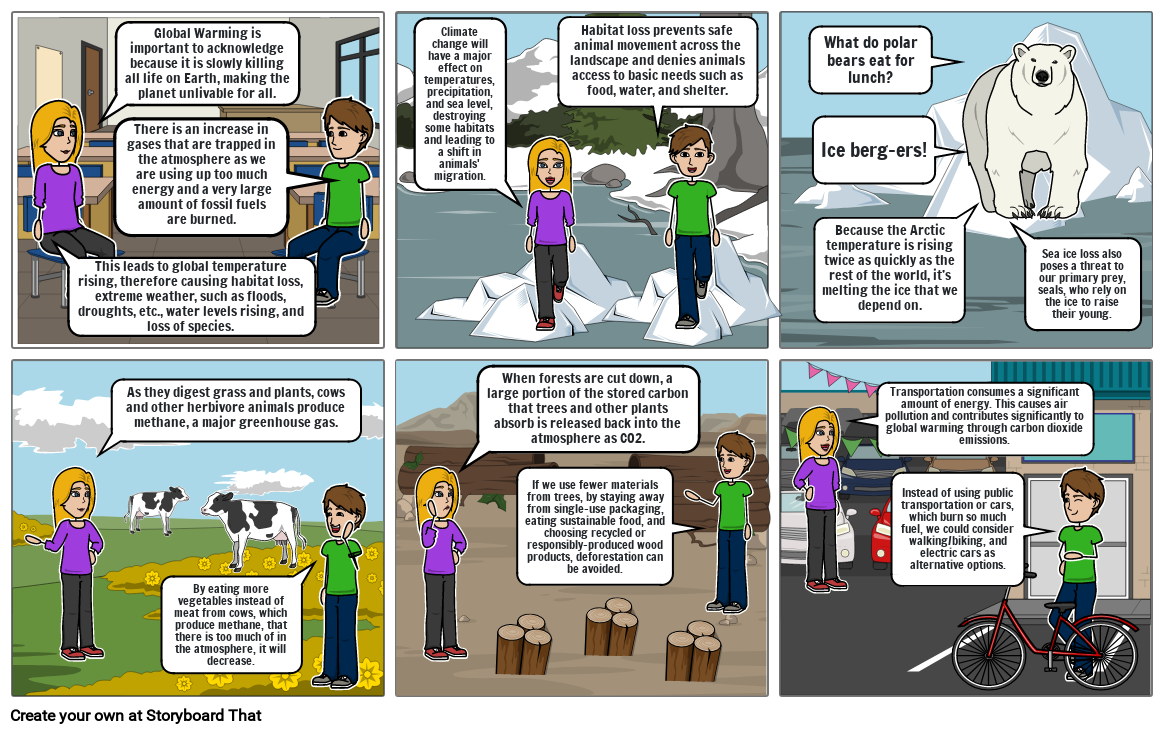Assignment 10- Global/Community Issue Story

Storyboard Text
- This leads to global temperature rising, therefore causing habitat loss, extreme weather, such as floods, droughts, etc., water levels rising, and loss of species.
- Global Warming is important to acknowledge because it is slowly killing all life on Earth, making the planet unlivable for all.
- There is an increase in gases that are trapped in the atmosphere as we are using up too much energy and a very large amount of fossil fuels are burned.
- Climate change will have a major effect on temperatures, precipitation, and sea level, destroying some habitats and leading to a shift in animals' migration.
- Habitat loss prevents safe animal movement across the landscape and denies animals access to basic needs such as food, water, and shelter.
- What do polar bears eat for lunch?
- Ice berg-ers!
- Because the Arctic temperature is rising twice as quickly as the rest of the world, it’s melting the ice that we depend on.
- Sea ice loss also poses a threat to our primary prey, seals, who rely on the ice to raise their young.
- As they digest grass and plants, cows and other herbivore animals produce methane, a major greenhouse gas.
- By eating more vegetables instead of meat from cows, which produce methane, that there is too much of in the atmosphere, it will decrease.
- When forests are cut down, a large portion of the stored carbon that trees and other plants absorb is released back into the atmosphere as CO2.
- If we use fewer materials from trees, by staying away from single-use packaging, eating sustainable food, and choosing recycled or responsibly-produced wood products, deforestation can be avoided.
- Transportation consumes a significant amount of energy. This causes air pollution and contributes significantly to global warming through carbon dioxide emissions.
- Instead of using public transportation or cars, which burn so much fuel, we could consider walking/biking, and electric cars as alternative options.
Over 30 Million Storyboards Created

